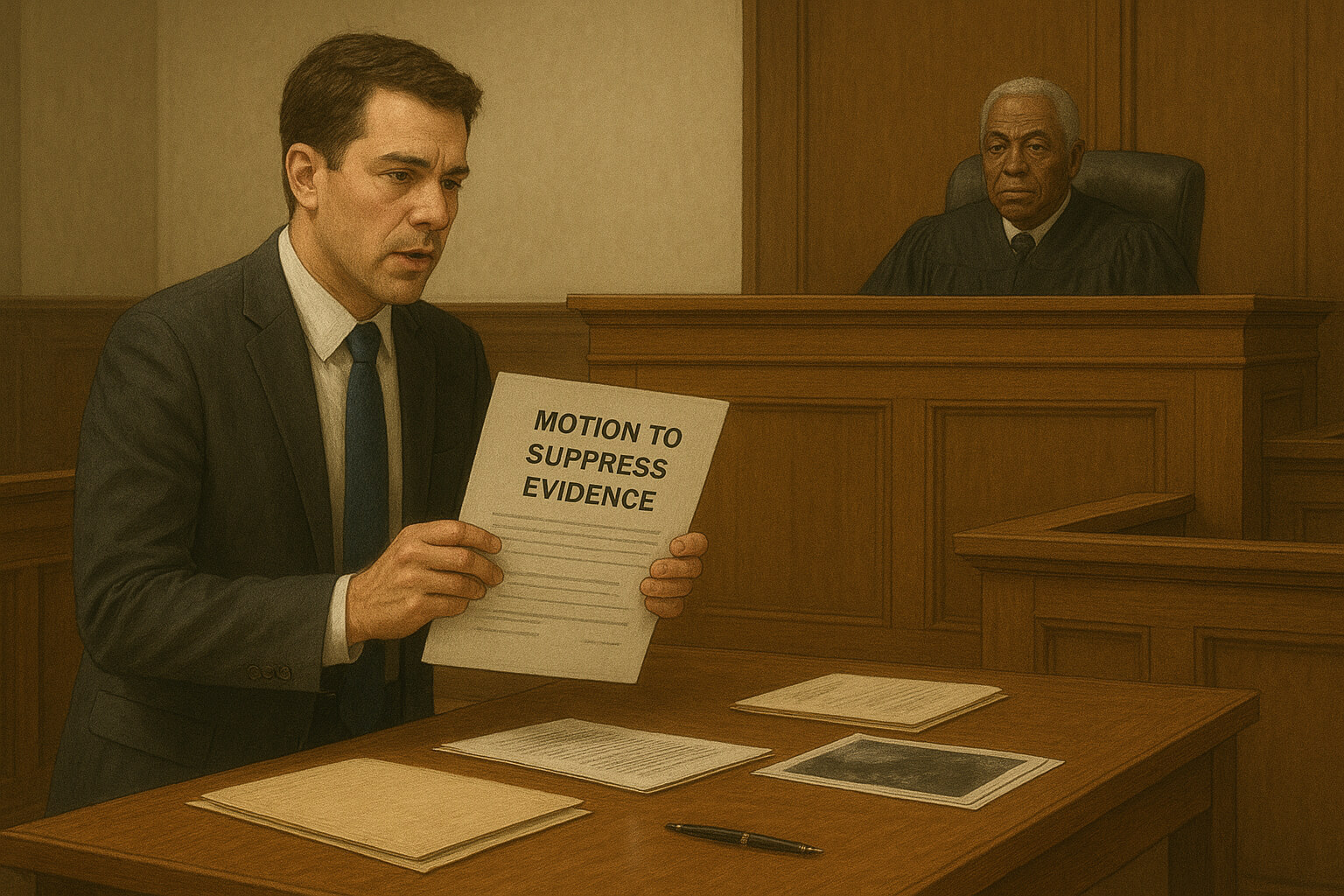How a Lawyer Can Challenge Evidence in a Criminal Case

Evidence is the cornerstone of any criminal prosecution. Without reliable, admissible proof, the government’s case collapses. That’s why a skilled criminal defense attorney doesn't just respond to charges—they aggressively analyze, question, and challenge every piece of evidence presented.
Challenging evidence is often the most effective way to protect a client’s rights, negotiate reduced charges, or even secure a full dismissal.
1. Questioning the Legality of Evidence Collection
- The first step is determining whether the evidence was lawfully obtained. Under the Fourth Amendment, individuals are protected against unreasonable searches and seizures. If law enforcement overstepped—by entering a home without a warrant, detaining someone without probable cause, or conducting a search without consent—any resulting evidence may be inadmissible.
- A defense attorney can file a motion to suppress, asking the court to exclude that evidence entirely.
- Learn how these issues unfold in practice with our Case Study: Defending a Client Against Federal Drug Trafficking Charges.
- See the U.S. Courts’ guide to Fourth Amendment protections.
2. Challenging the Chain of Custody
- In criminal trials, how evidence is handled is just as important as what it is. From the moment it is collected, every item must be carefully tracked and documented. This is known as the chain of custody.
- If there’s any gap—such as missing log entries, inconsistent labels, or unaccounted transfers—a defense attorney can argue that the evidence may have been:
- Contaminated
- Mishandled
- Tampered with
- The result? That item may be ruled inadmissible or unreliable in court.
3. Disputing Scientific and Expert Evidence
- Forensic science carries persuasive weight with juries—but it is far from perfect.
- Defense attorneys often retain independent experts to review:
- DNA analysis
- Ballistics reports
- Digital evidence
- Breathalyzer or blood alcohol content (BAC) tests
- Fingerprint or fiber comparisons
- Through expert testimony, the defense can expose flaws in the prosecution’s scientific evidence, highlight questionable lab procedures, or challenge the bias or qualifications of government experts.
4. Exposing Witness Credibility Issues
- Prosecutors often rely on eyewitnesses, informants, or alleged victims—but testimony is only as strong as the person giving it.
- Defense attorneys work to discredit unreliable witnesses by examining:
- Inconsistent statements
- Personal motives or bias
- Criminal history or plea deals
- Lack of firsthand knowledge
- Errors in memory or perception
- During cross-examination, attorneys can use contradictory evidence or prior depositions to cast doubt on the witness’s reliability—and, by extension, the prosecution’s entire narrative.
5. Filing Motions to Exclude Prejudicial Evidence
- Before trial, the defense may file motions in limine to prevent the jury from hearing:
- Illegally obtained statements
- Coerced confessions
- Hearsay
- Prior bad acts or character evidence
- Graphic or inflammatory materials
- These motions aim to keep the trial fair and prevent jurors from being swayed by irrelevant or prejudicial information.
- For guidance on preparing for criminal defense, including budgeting and strategy, check out A Guide to Fee Structures for Criminal Defense Cases.
6. Using Evidence Challenges to Leverage Plea Negotiations
- When a key piece of evidence is weakened or excluded, prosecutors may re-evaluate their case. This opens the door for defense counsel to:
- Negotiate a favorable plea deal
- Have charges reduced
- Secure a full case dismissal
- Many cases are resolved before trial because the prosecution loses confidence once its evidence is successfully challenged.
Conclusion: Evidence Is Not Always Absolute
From unlawful searches to unreliable expert testimony, there are dozens of ways to challenge the prosecution’s evidence. A knowledgeable criminal defense attorney will explore every opportunity to:
- Enforce your constitutional rights
- Exclude damaging or unfair evidence
- Expose weaknesses in the government’s case
In many cases, the strength of the defense lies not in disproving guilt—but in disqualifying the prosecution’s proof.
